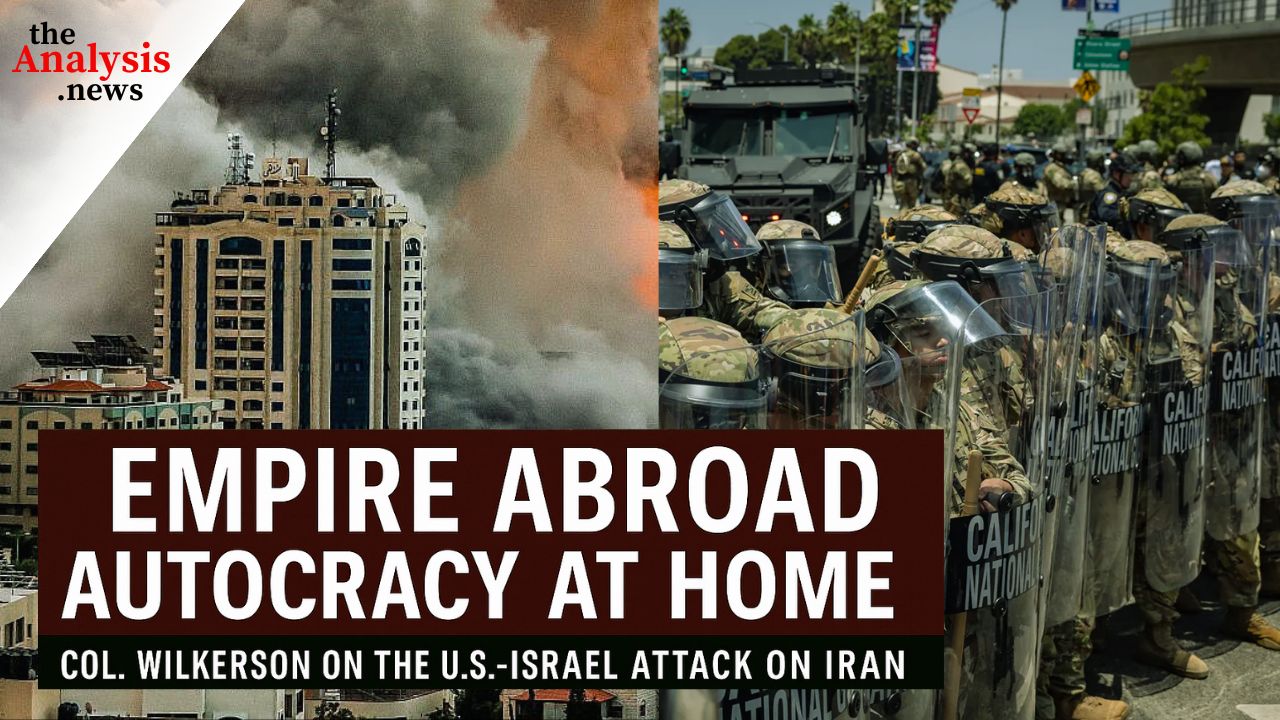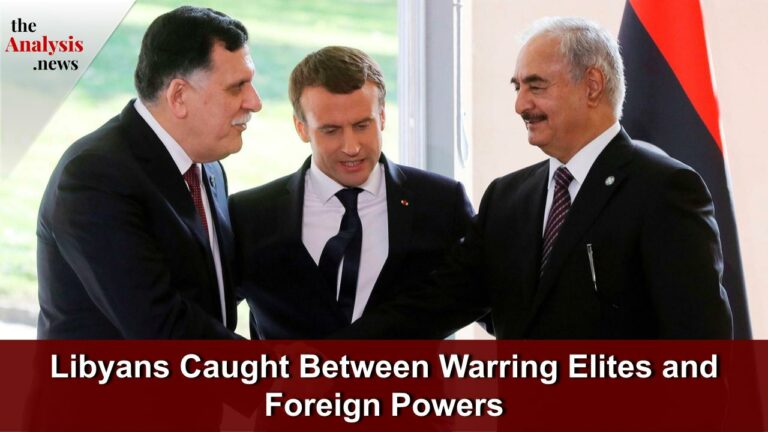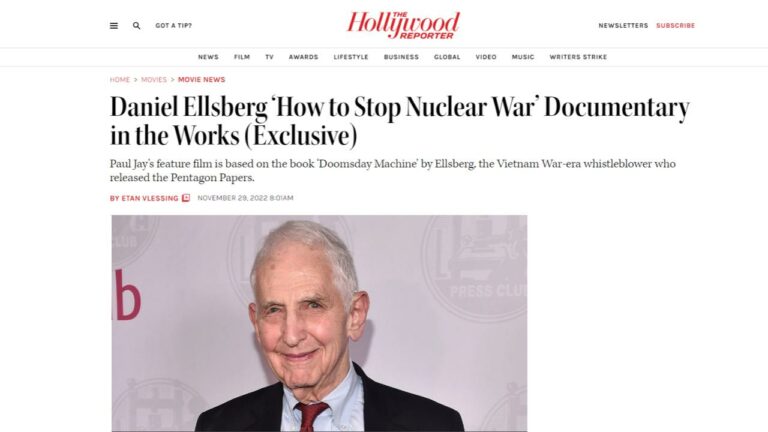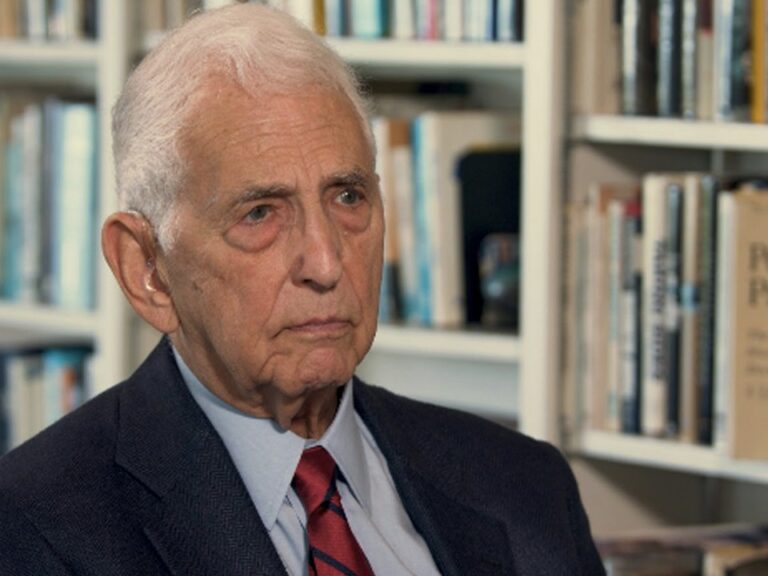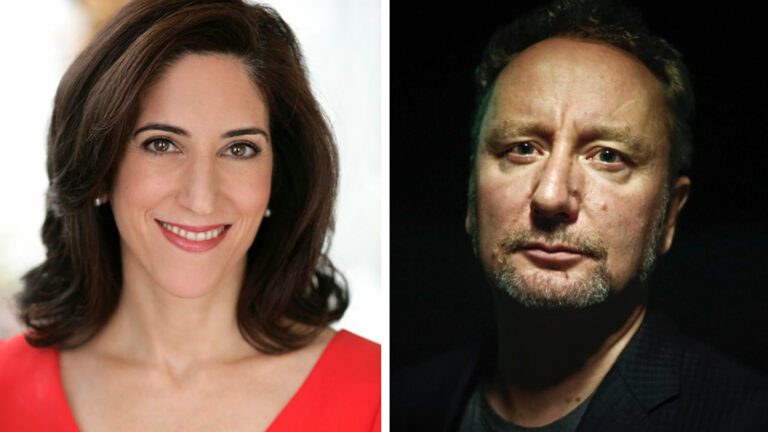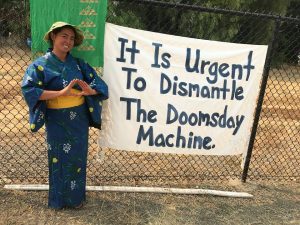This interview was originally published on June 8, 2011. Lawrence Wilkerson, Collin Powell’s former Chief of Staff, reflects on his life journey from “cold warrior” to harsh critic of US foreign policy.
Reality Asserts Itself with Lawrence Wilkerson (2011)
PAUL JAY, SENIOR EDITOR, TRNN: Welcome back to The Real News Network. I’m Paul Jay in Washington. We’re continuing our series of interviews with Larry Wilkerson. We’re now going to pick up on 9/11. Thanks for joining us.
LAWRENCE WILKERSON, FMR. CHIEF OF STAFF TO COLIN POWELL: Sure.
JAY: So where were you on 9/11?
WILKERSON: I’d just given a breakfast talk in the morning at one of the hotels downtown in Washington and was riding in a taxi back to the State Department, had just exited a taxi, and the radio recorded the first tower being hit in New York. So I got back in the taxi, listened to the radio.
JAY: What’s your first thought?
WILKERSON: My first thought was that the black smoke roiling up across the river might mean that something else had been hit too. And so I ran up the stairs and into the building and discovered that, yes, the Pentagon had been hit also. You could see it. And then, of course, the mass of people coming out of the State Department caught me, and we all went to our separate areas per our evacuation plan. And the rumors were rampant–you know, a bomb had gone off on C Street, a car bomb had exploded on D Street, and so forth. So everyone’s running around, trying to do what they can to make sure that all their people are safe and that they’re in their designated areas outside the State Department.
JAY: So this became a seminal moment for, really, a change in the whole US foreign policy and military positioning in the world. Did you think that was justified, based on what happened? And I’m talking your mindset at the time.
WILKERSON: I thought we needed to do something about Afghanistan, and I thought we needed to do it forthwith. What that something should be would probably be to take out al-Qaeda. How we did it, with the CIA, with special operating forces, or with the military, was up to other people above my pay grade to decide. I also thought that what Colin Powell had developed, as I recall, on 12 September–I say Colin Powell; his staff developed–to give to the president was a pretty good strategy, and it was a strategy to essentially enlist all the countries in the world that we had dealings with in one way or another, in order to assist in dealing with this problem called terrorism with a global reach. We weren’t calling it the global war on terror at that time. It was terrorism with a global reach, meaning terrorist groups that had the capability and the intent of reaching out across borders and striking people, including us and our allies. And this was everything from political support to troops in whatever struggle might result. And this was briefed to President Bush, and he accepted it. This was the strategy. And with each country and each ingredient or ingredients that that country offered, whether it was overflight rights, political support, soldiers, or whatever, was a diplomacy. Now–and who would execute that diplomacy. With Pakistan, for example–very important country–it was the president and the secretary of state and the deputy secretary of state. They were going to orchestrate that diplomacy with some other country that might provide only political support in the UN or wherever. It would be our ambassador in that country who would ask for that support and coordinate the support. So this was the strategy. It was a strategy built on exploiting–and that’s not the right term–using the world solidarity that occurred because of 9/11, the sympathy we got from Tehran, from everywhere in the world, from Havana, and using that sympathy in a positive way to fight these terrorists who were doing these things globally.
JAY: Now, President Bush makes a speech a few days after 9/11. It’s not a war against an organization called al-Qaeda. There’s no specificity to who we are going to fight. You are either with us or you’re against us in a war on terror. And it becomes a rubric for just about anything.
WILKERSON: As far as I know, until the 19 words, I think it was, or 16 words, or whatever, about Niger and uranium in Niger, presidential and vice presidential speeches in particular were never clear with anyone. Maybe at a National Security Council meeting or maybe in principals, Colin Powell might glance at a speech. Dick Cheney didn’t clear his speeches with anybody.
JAY: I mean, they essentially established a new US foreign policy which divided the world: you’re with us or you’re against us; join the war on terror or you’re our enemy; we will strike you if you–as if you are the enemy.
WILKERSON: And an interesting thing about that is, as I came to find out later, and this is a fascinating point to be researched by a scholar in the future, a lot of that rhetoric came from speechwriters like Michael Gerson and others. It did not come out of the fertile brain of Dick Cheney or George Bush or Condi Rice. It came from speechwriters eager to be high rhetoriticians, eager to create their own evil empire phrase for George Bush, like it was created by Tony Dolan for Ronald Reagan. And this sort of thing gets out of hand when you don’t have people who are sane, pragmatic, and sober reading these speeches in the bureaucracy, in the cabinet departments, and in the agencies and so forth. And that wasn’t happening. So these speeches–.
JAY: But it did play into what Cheney and group wanted to do.
WILKERSON: Well, I think Cheney’s not the most eloquent person on the face of the earth. If you’ve ever seen him give a speech, you know that. He used talking points that were developed [incompr.] and yes, these talking points were developed from these sort of people, and they were developed from the kind of things that Douglas Feith was doing over in the Pentagon in his Special Plans Office, where he was developing these talking points about Iraq and so forth.
JAY: So when you hear this and then you start to see that in this new administration you’ve just joined, the foreign policy and a lot of other things are being run by the vice president, Cheney, what does this do to Larry Wilkerson?
WILKERSON: This becomes very scary. We’re looking at a constant barrage of speechifying coming from the vice president, from the president, from the National Security advisor. We’re looking at a constant barrage of unilateral actions that our boss Colin Powell was having to ameliorate in some way. We had a phrase already: by the end of 2002, we were saying Colin Powell’s job is to clean the dog crap off the Oval Office carpets, because there was so much dog crap. We had a German chancellor that wouldn’t even speak to the president of the United States. We had a situation in Europe in general that was fractious at best because the Transatlantic relationship was frayed mightily, not just by Kyoto and the unilateral rejection of that, which I think everybody expected, but by the fact that we came out and essentially said the Anti-Ballistic Missile Treaty is dead and we’re going to build ballistic missile defense and spend $60 billion to do it and didn’t talk to anybody, didn’t consult anybody, didn’t talk to Moscow. This scared the bejesus out of our European allies.
JAY: And how long after 9/11 do you become aware that the Bush-Cheney objective is not even so much about Iraq? They didn’t seem all that interested even in capturing bin Laden or killing bin Laden. The direction is Baghdad and Iraq.
WILKERSON: I think that became very clear to me after we got UN Security Council Resolution 1441, 15-0 vote in the UN Security Council, in November 2002. And I realized in all the euphoria over that–my boss was elated. You know, this was a historic victory. We got a 15-0 vote in UN Security Council. In all that euphoria, I kind of pricked it for myself, and I looked at it and I said, I think we’re going to war.
JAY: Greg Thielmann, who I believe had the file about proliferation of weapons of mass destruction and reported to John Bolton, who then, I assume, reported to Powell–yes?
WILKERSON: M-hm.
JAY: Thielmann told me directly that when Bolton took over, he–Thielmann comes in for the security briefing, and Bolton says to Thielmann, so where are the weapons of mass destruction in Iraq? And Thielmann says, well, we don’t think there are any. And Bolton says, oh, well, come back next week and tell me where the weapons are. So Thielmann told me this over a breakfast. But he did this three times. And after the third time, and Bolton said, well, we won’t be requiring your participation anymore in these security briefings to the guy who’s in charge of collecting the intelligence. And that’s within the State Department. Now, did Thielmann’s opinion reach you? Did it reach Powell? Did you guys know your own guy was saying nothing was there?
WILKERSON: Carl Ford gave Colin Powell his best shot. Carl Ford was one of 16 entities in the United States’ very expensive–at that time about $60 billion–intelligence apparatus, one of 16. Carl Ford in INR at State dissented on an active nuclear weapons program. They did not dissent on chemicals and biologicals. And that got weighed in the balance. And George Tenet as the DCI said, oh, 15-1. Sorry. You’re beat. And it became an active nuclear program as well as chemical and bio, and other violations too.
JAY: Okay. So next segment of the interview, we’ll talk about what happens after this and how you start to question some of the underlying assumptions of all of this. Please join us for the next segment of our interview with Larry Wilkerson on The Real News Network.
Never miss another story
Subscribe to theAnalysis.news – Newsletter
Lawrence Wilkerson is a retired United States Army Colonel and former chief of staff to United States Secretary of State Colin Powell.

